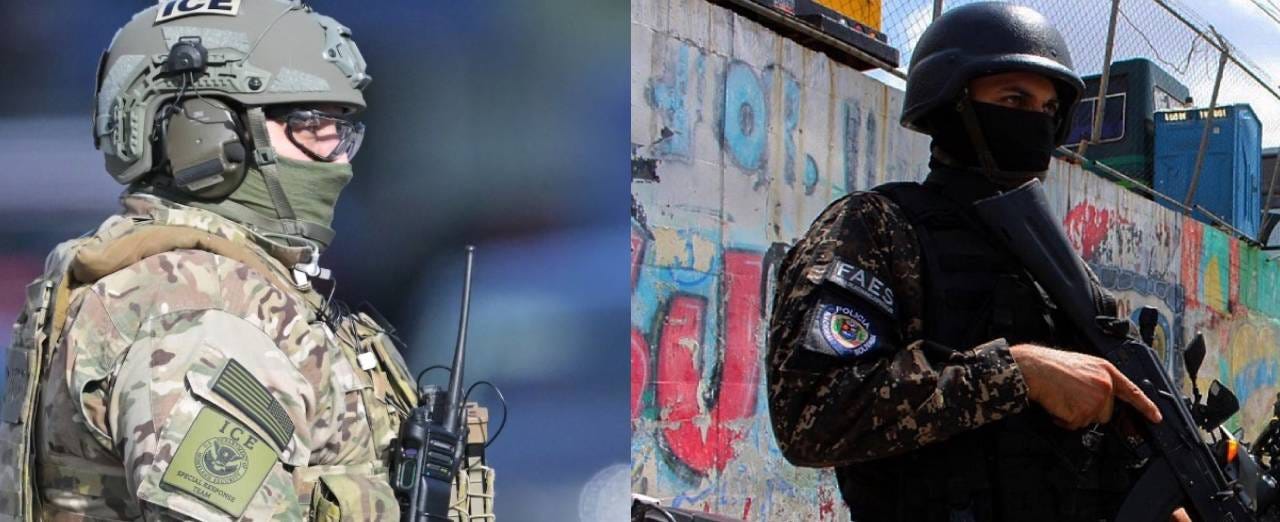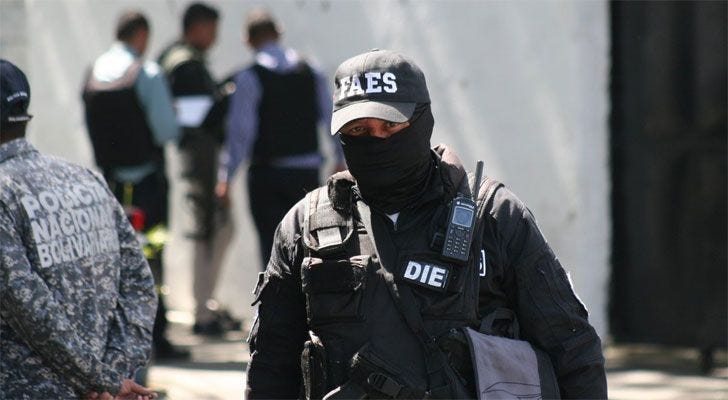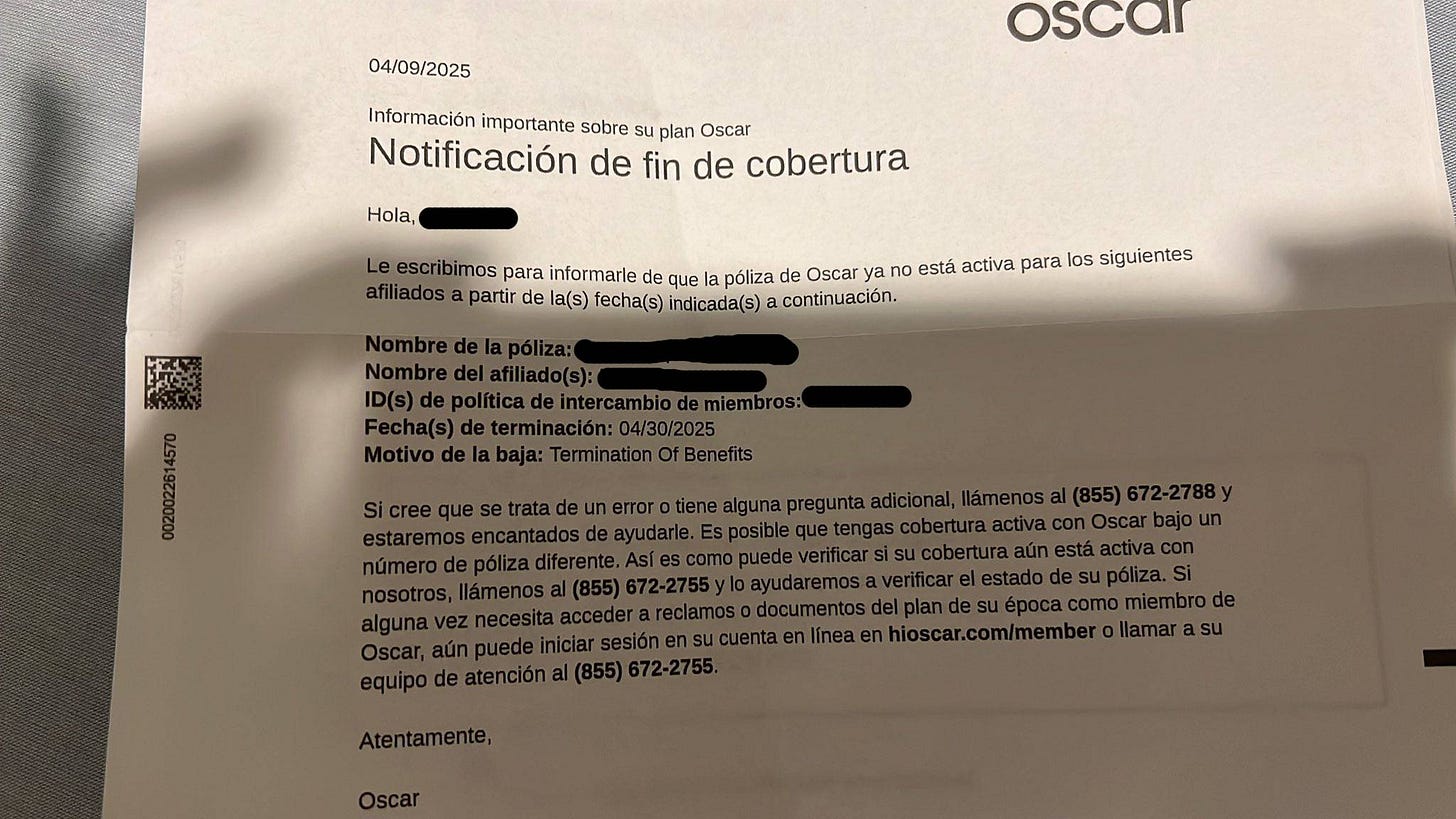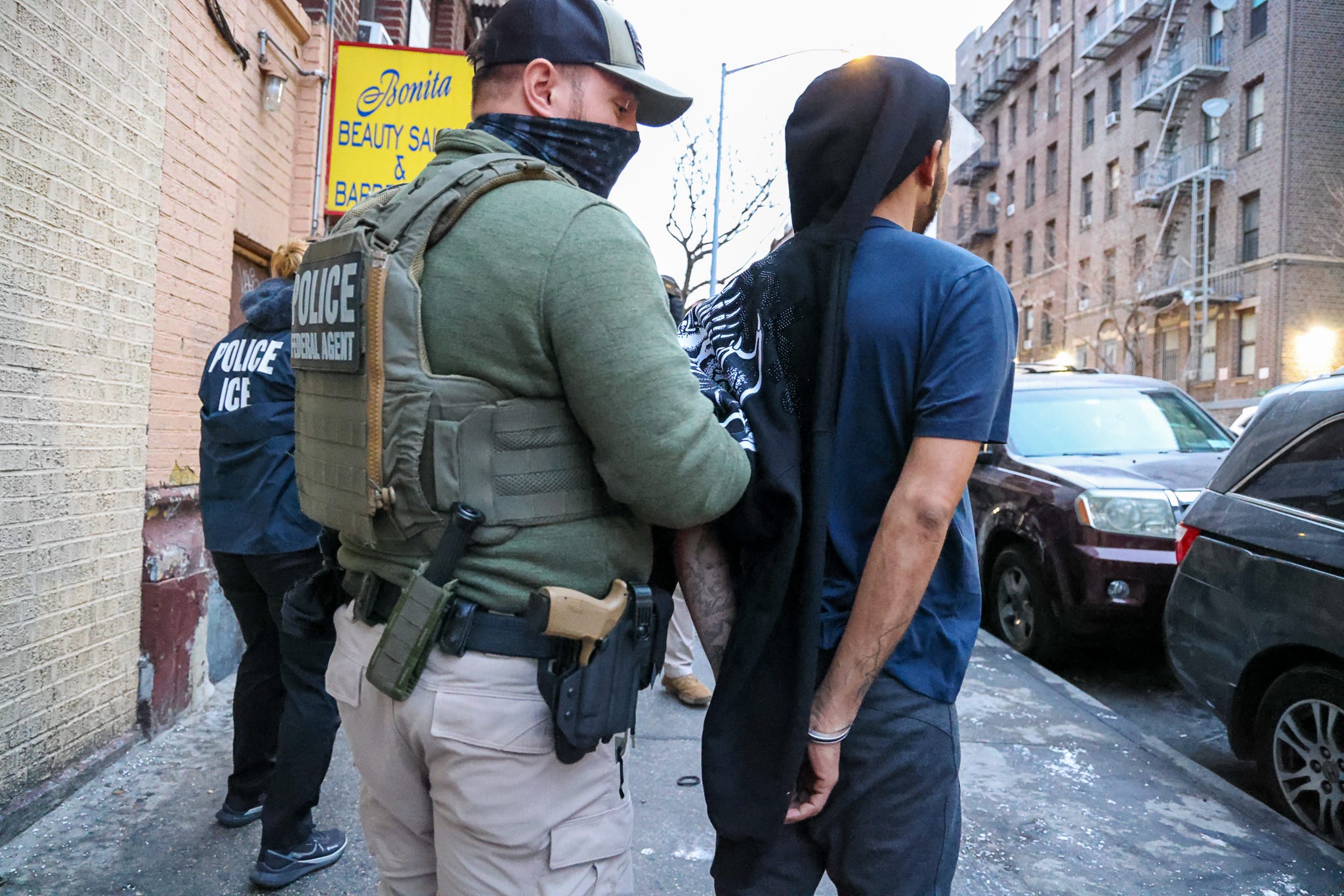Venezuelans in the U.S have seen the tactics ICE uses before
Migrants describe "an atmosphere of terror" comparing Trump policies to persecution they faced in their home-nation
Entries at “The Ship’s Log”, for paid PWS subscribers, are the behind-the-scenes notes from our crew’s work as freelance journalists in an unpredictable region, or analysis on the big headline stories you can’t get anywhere else. If you’re a subscriber, thank you, and read on! If not, please consider supporting our work for just $5/month*
In this case, as part of an ongoing subscription drive, and because we believe our investigation is newsworthy to a broader audience, we plan to make this piece public after 48 hours. But paid subscriber get unique access first!
I used to cover Venezuela full-time. The peak of the Venezuelan exodus between 2017 and 2019 was how I became a professional freelancer — writing from both sides of the Venezuelan-Colombian borderlands.
Because of that time, I have a lot of Venezuelan friends and contacts, in both the U.S. and Venezuela. Over the last few months, the messages from the Venezuelans I know in both places have become eerily similar.
“I don’t post anything political on social media,” says a friend in Táchira, who asked that her name not be published for personal safety reasons. “I don’t use my real name on anything. No photos. All accounts are anonymous,” she continues.
She wipes all messages on her phone, as it is regularly revised by police and military at checkpoints. It’s a phenomenon that has worsened since Maduro’s suspected fraud during elections in July 2024. Hundreds of people have been detained for their opinions. Hundreds more have been forcibly “disappeared”. Others have been killed. Human Rights Watch released a report detailing the situation on April 30.
Masked men in military uniforms grab students off the street with dubious or no evidence, or for criticizing the government on social media, and even for writing op-eds. Children are disappeared, or their parents are, and the children are left behind with no information on their whereabouts.
Many of those who are detained have been charged with no crime and are held incommunicado in the infamous Caracas prison, Helicoide. Human Rights Watch and United Nations investigators have documented torture, extrajudicial executions, and mysterious deaths at the complex, which Venezuela describes as a facility for “terrorists”.
Meanwhile, in the U.S, old tactics against migrant populations have been amped up to a massive scale by the administration of Donald Trump. Heavily armed ICE officers, wearing masks to hide their identities and garbed in military gear, have raided workplaces, courtrooms, homes, and even schools, disappearing thousands, including children, and even U.S. citizens.
U.S. security forces have detained foreign students with valid visas, as well as U.S. residents, for attending pro-Palestine protests and even for writing op-eds that criticized the U.S. government.
The U.S. Department of Homeland Security (DHS) has also deported hundreds of Venezuelans to the infamous CECOT Terrorism Detention Center in El Salvador. Human Rights Watch investigators have documented torture, mysterious deaths, disappearances, and uncovered evidence that strongly suggests some prisoners have been extrajudicially executed by security forces at the prison facility.
The parallels to Venezuela, a country the Trump administration has often criticized for its human rights violations and called a dictatorship, are glaring.
The Venezuelan Connection
Doral, in southern Florida, is often referred to as Miami’s “Little Venezuela.” In recent years, it has seen significant population growth, thanks in part to the 27,000 Venezuelan immigrants who now make up more than a third of its population.
The region swung towards Trump in the last election, but it is a mistake to think of the Venezuelan migrant population there as homogenous in its support for his policies. Many who live there have long been vocal about their fears of Trump’s authoritarian tendencies, even at times comparing him to Venezuelan President Nicolas Maduro.
Regardless of their political leanings, however, Venezuelans in Doral have been disappearing — and in some cases they are people who suffered the very same tactics ICE is using now at the hands of Venezuelan security forces.
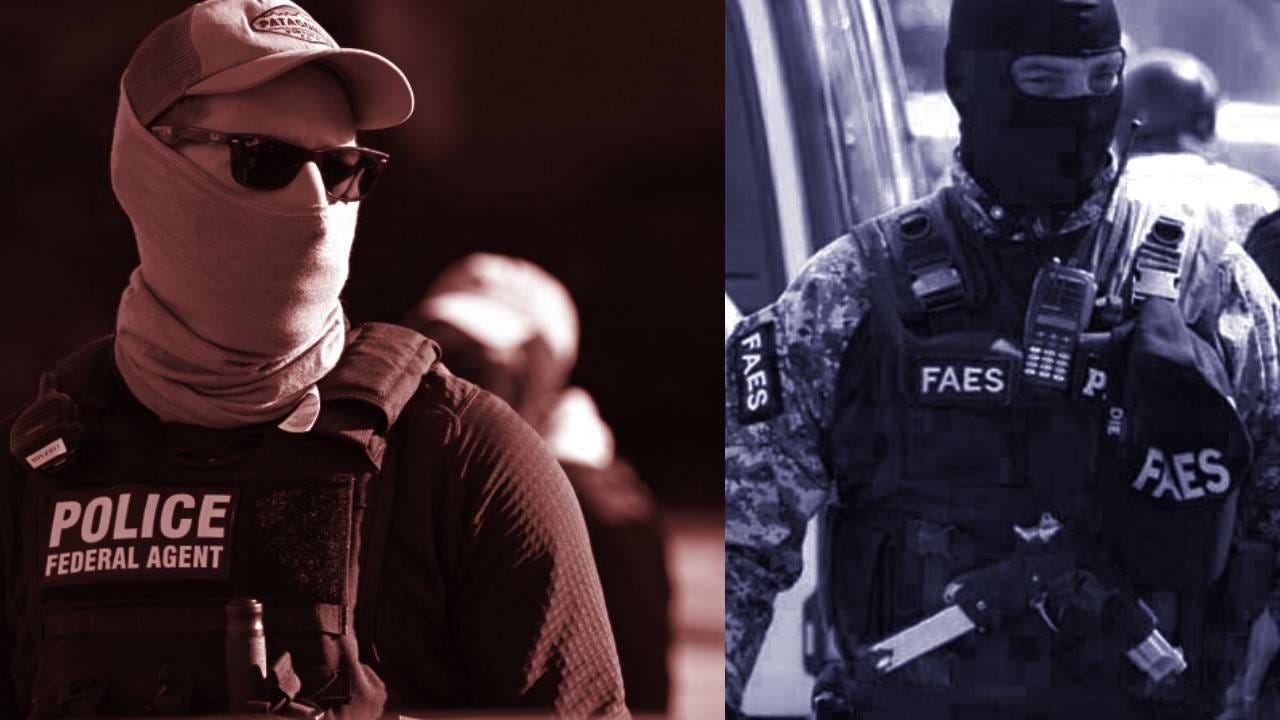
Nationwide migration crackdowns, as the U.S. government intends, have fostered an atmosphere of fear and paranoia among vulnerable populations.
“The University has warned me not to post any political opinions on social media,” said one student at the University of Miami who reached out to PWS through private messages on social media. “I erase messages in my group chats in case my phone is ever revised. I live in fear that I might be next. I haven’t felt like this since I lived in Caracas.”
He worries he might receive self-deportation orders, as the Trump administration revokes the visas of hundreds of foreign-born students as part of a more widespread attack on universities.
Another Doral resident reached to PWS asking us to look into a letter she and dozens of other Venezuelan residents had received from their insurance company. The letter, identical copies of which they all received, stated that their insurance policies had been unexpectedly terminated.
An Atmosphere of Terror
“People are scared,” she told PWS. They worry this is an attempt by ICE to confirm their physical addresses ahead of a deportation operation. “When I ask why the company has terminated our insurance plans, they don’t have answers,” she continued. “One representative [for the insurance company] told me ‘it’s probably a mix-up like that DHS email that got sent to thousands of students saying their visas had been cancelled.’”
She sent PWS a copy of the letter. We tried three times to call the company, named Oscar, to ask why so many Venezuelan migrants’ policies had been cancelled simultaneously. On the third try, , after identifying ourselves as journalists we were told “No comment,” before the representative ended the call.
As of the publishing of this story, her insurance policy had not been renewed, nor had she received any details on why it had been cancelled. Unlike some of her neighbors, she has documented legal status in the U.S. But based on recent ICE actions, that may not matter.
Perhaps it’s nothing more than a glitch, or a random side-effect of the chaos generated by Elon Musk’s Department of Government Efficiency (DOGE), which has been blamed for the erroneous email sent to hundreds of students ordering them to self-deport.
Or perhaps it really is ICE trying to confirm the physical addresses of migrants. They are already building massive databases with that information in cooperation with the IRS.
The White House is assembling lists of millions of people they want to deport over the next 4 years. They are pouring massive resources into new detention centers, expansion of ICE personnel, and even partnering with civilian actors to carry out the mass arrests.
For Venezuelans in the U.S., while some of the details are unique, the broader strokes of these policies are terrifyingly familiar. They’ve seen them before. They are the policies of an authoritarian government bent on demonizing vulnerable populations through dehumanization and painting them as an “internal enemy.”
If you’ve read this far, you are one of the subscribers actively supporting PWS. We’d like to take this moment to thank you deeply for doing so. We quite literally could not keep the ship sailing without you, and we are grateful for it.


